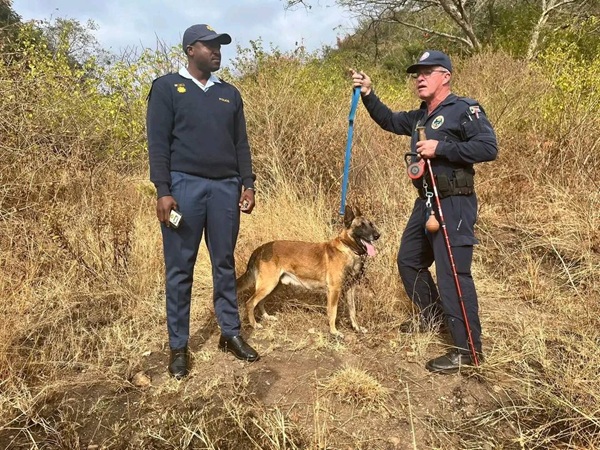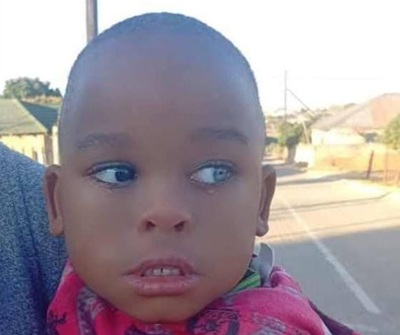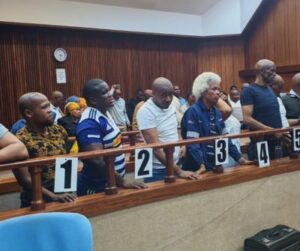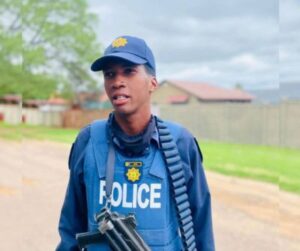Masoyi, Mpumalanga – 24 July 2025
The investigation into the disappearance of 3-year-old Nkosingiphile Ndwane Ntiwane, a deaf and mute child from Masoyi in Mpumalanga, has taken a new direction. Police have confirmed that the child’s parents have been taken in for questioning as part of ongoing efforts to locate the missing toddler.
Nkosingiphile was last seen playing in the yard of his home in Mshadza Trust on Saturday afternoon, 20 July 2025. According to his father, the child had gone outside shortly after lunch, but when he went to check on him, the boy was nowhere to be found. A search by neighbours and local community members was launched immediately, but by sunset, there was no sign of the child.

Police, search and rescue teams, and other role players were called in to assist. Since then, efforts have continued with urgency, given the child’s communication challenges. Nkosingiphile is both deaf and mute, which makes locating and assisting him even more time-sensitive.
At the time of his disappearance, he was wearing a military-coloured jumpsuit and a peach-coloured jersey.
Read Also | Urgent Search for Missing Brakpan Teen Anke Meyer
Questioning Nkosingiphile’s Parents: Standard Procedure or Cause for Concern?
Police spokesperson Captain David Hlatshwayo confirmed that the child’s parents were taken in for routine questioning, a common step in missing person cases, especially involving young children.
“We are conducting a thorough investigation and questioning everyone close to the child. This is part of normal procedure. No one is being accused, but we must rule out all possibilities,” said Hlatshwayo.
This move has understandably raised concern among some community members. Still, others acknowledge that police often begin investigations with those closest to the missing child, not out of suspicion, but to gather a clear picture of the events leading to the disappearance.
Learning from the Past: Not All Suspicions Are Misplaced (Joshlin Smith and Jayden Lee Meek cases)
South Africans are still reeling from recent high-profile cases where children went missing under unclear circumstances, only for troubling truths to emerge later. These cases have led many to accept that police questioning of parents or caregivers is a necessary part of ensuring no stone is left unturned.
In the Joshlin Smith case, six-year-old Joshlin went missing on Monday morning [19 February 2024] at 9 am.
“She was last seen at Middelpos Saldanha [suburb], wearing a blue t-shirt and blue denim trousers, with a birthmark on the right arm.”. Her mother, Kelly Smith, was eventually convicted of kidnapping and trafficking her daughter. Evidence presented in court included victim impact statements and allegations that the child may have been sold for money. Although her body was never found, the conviction was based on extensive testimony and investigation. The case shocked the country and raised serious questions about trust and protection within families.
In a separate case, Jayden-Lee Meek, a Grade 6 pupil, died from blunt-force trauma in May 2025. His mother is facing trial after the child was found dead in the stairwell of their Johannesburg flat. Forensic evidence revealed a blood trail leading back to the home. While the mother maintains her innocence, the case has highlighted how vulnerable children are, even in familiar environments.
Read Also | Tiffany Meek Returns to Court Today as Bail Decision Looms in Shocking Jayden-Lee Murder Case
Are the Police Getting It Right?
These tragic stories have influenced how law enforcement handles cases like Nkosingiphile’s. It would be unfair to assume guilt — especially amid an active search — but it also raises important questions:
- Are police justified in first questioning the parents?
- Is the public too quick to assume wrongdoing, or too slow to acknowledge warning signs?
- What role should the community play in holding both families and authorities accountable?
We invite our readers to engage in the comment section below: What are your thoughts? Should parents always be the first ones questioned? How can we better protect children who cannot speak for themselves?
The Urgent Need to Protect Vulnerable Children
This case also highlights the urgent need for greater awareness and action when it comes to children living with disabilities. Children who are deaf, mute, or living with cognitive or physical impairments are far more vulnerable in dangerous situations.
Key safety measures include:
- Always supervise young children closely, even in private yards.
- Educating families and neighbours about how to communicate with children with disabilities.
- Installing secure gates and boundaries in homes where vulnerable children live.
- Acting quickly when a child goes missing — the first hours are often the most crucial.
How You Can Help Find Nkosingiphile

The police are urging the public to remain vigilant and search their properties, outbuildings, and nearby open fields for any signs of Nkosingiphile. He cannot respond to his name or call for help, so sightings must be reported immediately.
If you have any information that could assist the investigation, please contact:
Captain David Hlatshwayo
📞 076 451 5495
Or report to your nearest police station.
WhatsApp us stories, tips, and missing Persons here







Leave a Reply